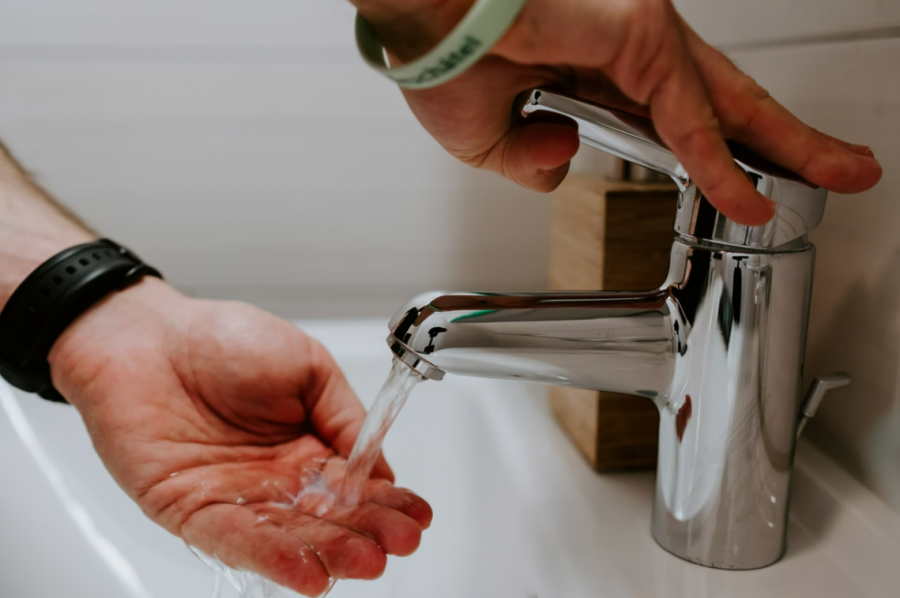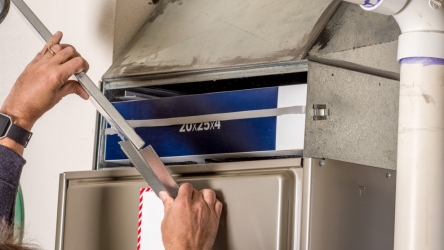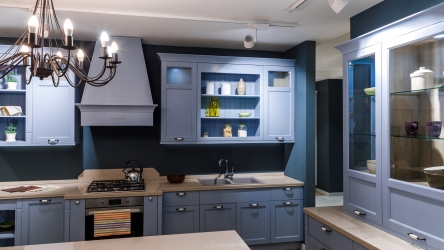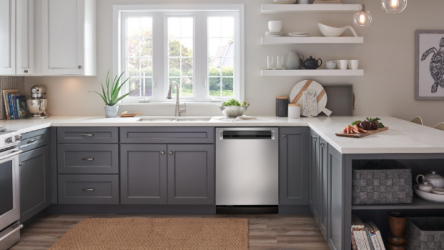
Your home’s plumbing system provides clean water to the various different fixtures in your home and disposes of waste water properly. To enjoy this everyday comfort, you need to pay a water bill and an electric or gas bill to power the water heater. Save on utilities and reduce your carbon footprint by using these tips to make your water system more efficient and eco-friendly.
Upgrade to a Tankless Water Heater
Tankless water heaters provide hot water on demand in a compact size far smaller than traditional tank water heaters. Because there isn’t a tank, it doesn’t have to constantly reheat to keep the stored water warm, so they run much more efficiently.
Remember that you may need to invest a substantial amount upfront for the unit itself and the installation, especially if you need to upgrade your electrical wiring or gas supply. However, you will make up the cost in monthly utility bills and the long lifespan.
Insulate Your Plumbing
Insulation acts as a barrier that protects the water in your pipes from the outside temperatures. Without insulation, hot water could lose heat on its path to the faucet or shower. When temperatures outside drop below freezing, it could cause the water in your pipes to freeze as well. This water expands as it turns to ice, and it could end up damaging your pipes.
Apply insulation to your most vulnerable pipes to ensure that they don’t freeze or release heat. You can also apply a water heater blanket to your water heater tank to insulate that as well.
Install Low-Flow Fixtures
The average showerhead generates 2.5 gallons per minute (gpm) of water. Low-flow showerheads must produce water at 2.0 gpm or lower. While this may seem like a small difference at first, low-flow showerheads can save the average household 2700 gallons of water a year.
Get Regular Maintenance
When you care for your water system, it will run at top efficiency. However, if you allow sediment buildup to accumulate in the pipes or the water heater, it can damage various components, decreasing efficiency and wasting both water and energy. Hard water that contains high levels of minerals develops calcium deposits more quickly than homes with soft water. Some regular maintenance tasks that you should perform at least once or twice a year include flushing the water heater, using a natural and enzymatic drain cleaner, inspecting for leaks, and tightening loose connections.
You can talk to a plumbing professional in your area about different ways to protect your system from future preventable issues. They may be able to recommend some maintenance tasks or repairs specific to your home’s needs. You can also schedule regular assessments with them. This can help find small problems before they become bigger concerns.
Reduce Water Use in the Yard
Large, lush yards and gardens are attractive. However, they are also a significant drain on water resources. There are ways that you can reduce the amount of water you use to water your yard. This also helps to put less strain on your plumbing system, which can help it last longer and run more efficiently.
The most obvious option is to get rid of your wide expanse of grass. Xeriscaping is a common solution, especially in desert areas. By removing water-hungry grass and sticking to hearty, native plants, you can reduce the need for watering in your yard.
Of course, you might not be able to reduce the need for watering entirely, especially if you have a vegetable garden. If you already have a sprinkler system installed for your yard, make sure that it is on a timer to prevent overwatering. You can also reuse household water, such as from a dehumidifier, to water the yard. Depending on where you live, you may be able to harvest rainwater and use that to water your garden. Remember to check the regulations and requirements for your area before you start collecting rainwater as some places will enforce fines or even jail time for collecting water without having the water rights.
Use Less Water Around the House
Even if your appliances and faucets are made to use and require less water, you may find that you are still wasting water around the house. Fortunately, you can fix this by taking a few simple steps. First, remember to turn off faucets when they’re not needed.
For example, when you’re brushing your teeth, turn off the water after wetting your toothbrush until you need it again to rinse your toothbrush. When you’re doing the dishes, fill the sink with water instead of letting water run the whole time you wash your dishes. You can also reduce the time you shower, or turn off the shower when washing until you need it to rinse off.
Keep an eye on how long your children leave water running, and teach them to limit their water usage. You may want to invest in a timer to remind them to get out of the shower within a certain amount of time. You can even locate your home’s water meter and show them how much water your family uses on a daily basis. When they have a solid number in mind, they—and you—may be better able and motivated to reduce that number.
Every home should have clean, dependable water at a reasonable cost. However, some variables depend on you. Some simple changes can lead to serious savings when you stick to those changes and turn them into habits. These changes can also help protect the environment in small but important ways. By altering your water usage habits and teaching your children water-saving habits, you can drastically reduce the amount of water you use around your house, as well as the strain you put on your plumbing system and on the environment.







